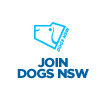News and updates
Herding at Orchard Hills: Update for MembersMany of you will have seen comments online over the last few days about the Board’s decision regarding sheep at Orchard Hills. To avoid confusion, and to make sure our members have the correct information, I want to set out what has happened and how the Board reached its position.
First and most importantly: herding is continuing at DOGS NSW.
Nothing in the Board’s decision prevents trials, training or activity at approved off-site locations. The decision relates solely to the management of sheep at Orchard Hills.
How we got here
Earlier this year concerns were raised about the condition of the flock at Orchard Hills after a particularly demanding season. This included heavier workloads on the sheep, reduced pasture quality, worm pressure and higher-than-usual feed supplementation needs. In light of these issues, the Board sought a clear understanding of what would be required to responsibly return sheep to the grounds.
The Herding Working Party, led by Director Ann Moy, supplied a detailed recommendation proposing the return of sheep in March 2026. Their proposal included limits on the number of training days, rest periods for the flock, notification requirements, and structured oversight to maintain welfare standards.
It is important to acknowledge that the NSW Herding Association has made significant improvements in flock care over the last 12 months. Their management of the sheep has been at a standard we have not seen in many years, and the Board recognises the effort, time and expertise that went into achieving this. Their work formed an essential part of the Board’s consideration.
Alongside this, the Board received a separate livestock management report that outlined, in practical terms, the level of management required to run sheep on the 20-acre Orchard Hills site. Key points included:
- the need for proper rotational grazing and rest paddocks
- seasonal feed shortages requiring scheduled supplementary feeding
- regular worm egg counts and follow-up testing
- biosecurity risks associated with the creek line and potential liver-fluke exposure
- structured rest periods before and after trials to maintain condition
- statutory record-keeping obligations for all treatments, rotations and training use
These requirements reflect current expectations for responsible livestock care, animal welfare and biosecurity.
Why the Board made its decision
After reviewing all information, the Board agreed that DOGS NSW does not currently have the capacity or infrastructure to manage a flock at Orchard Hills to the standard required under modern welfare, safety, biosecurity and compliance obligations. While the Working Party’s submission was detailed and well-considered, and despite the excellent work of the NSW Herding Association over the past year, the practical demands of meeting all requirements consistently remain significant.
The decision was made in support of animal welfare and safety. It reflects our responsibility to ensure that any livestock under the care of DOGS NSW are managed in a way that meets regulatory expectations and protects their wellbeing. Based on the evidence before us, maintaining sheep at Orchard Hills is not a viable or responsible option at this time.
Where herding stands today
- Herding remains fully supported as a discipline.
- Activities at Kurrajong continue, and the Board is open to additional off-site venues if brought forward.
- Orchard Hills is not ruled out for the future; however, it requires a level of infrastructure, resourcing, management and most importantly to consider the welfare of the livestock into the future.
Our aim is simple: if DOGS NSW manages livestock, it must be done safely, sustainably and with the welfare of the animals as the first priority.
Moving forward
The Board recognises herding’s long history within DOGS NSW and the commitment of the many members involved in the sport. We will continue to work with the NSW Herding Association, the Herding Working Party and all stakeholders so that herding remains strong, supported and well-managed.
This update is provided so that members have a clear understanding of the facts and the process that led to the Board’s decision.
President & Board Executive
DOGS NSW



